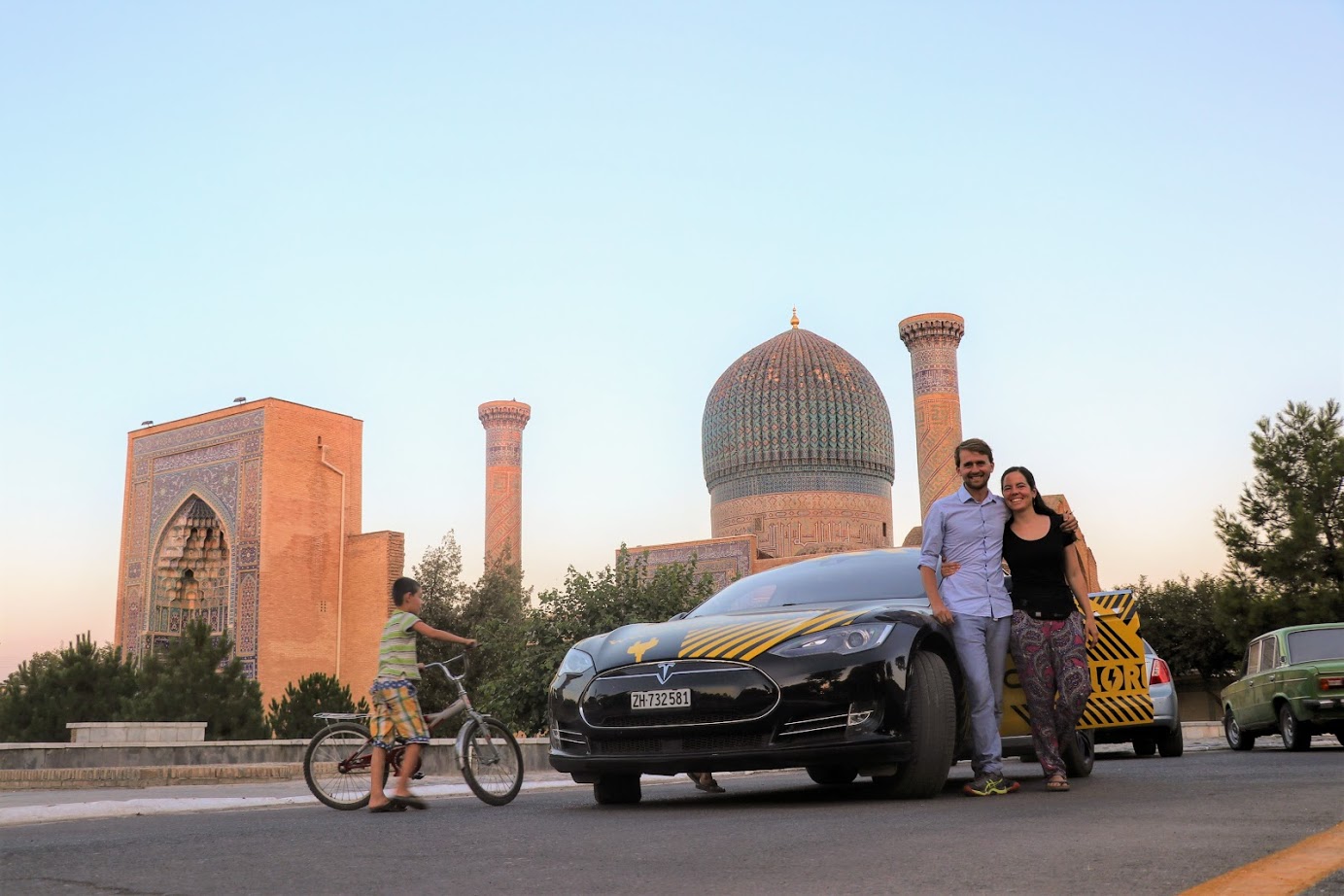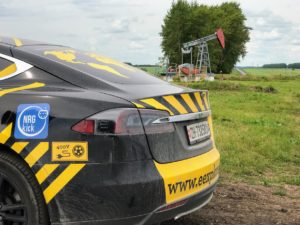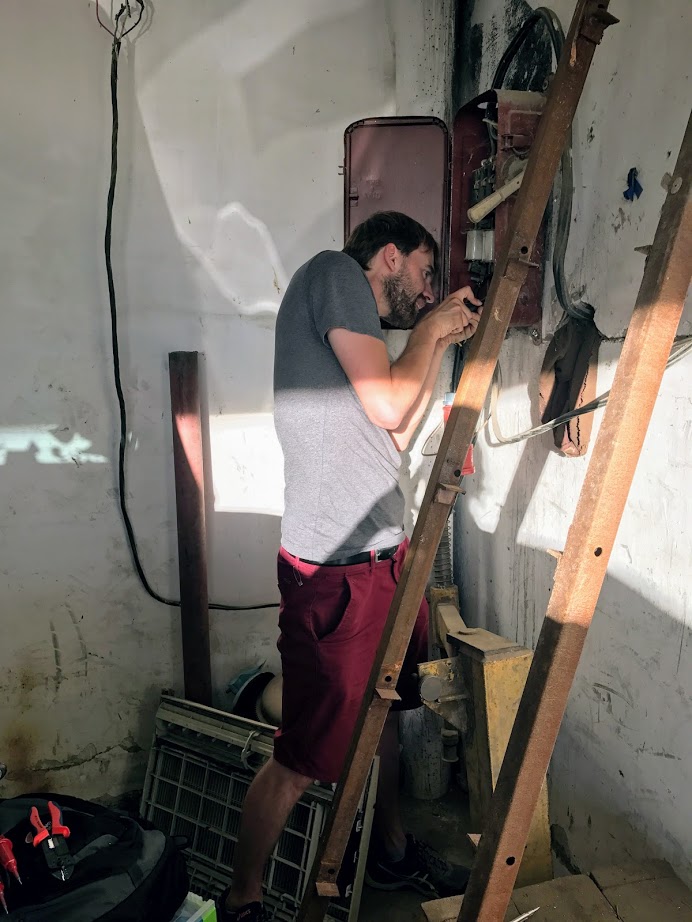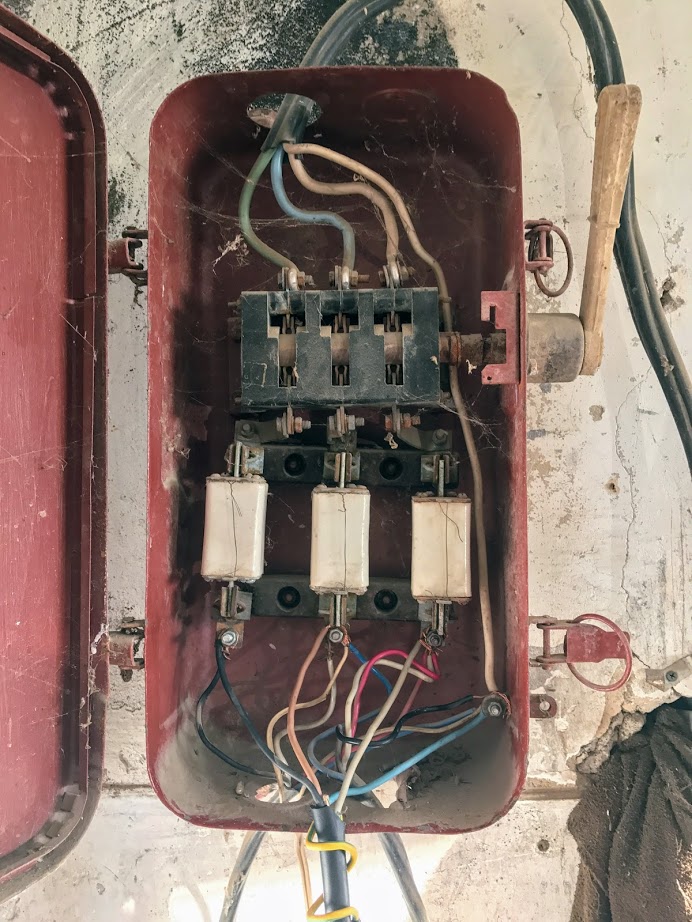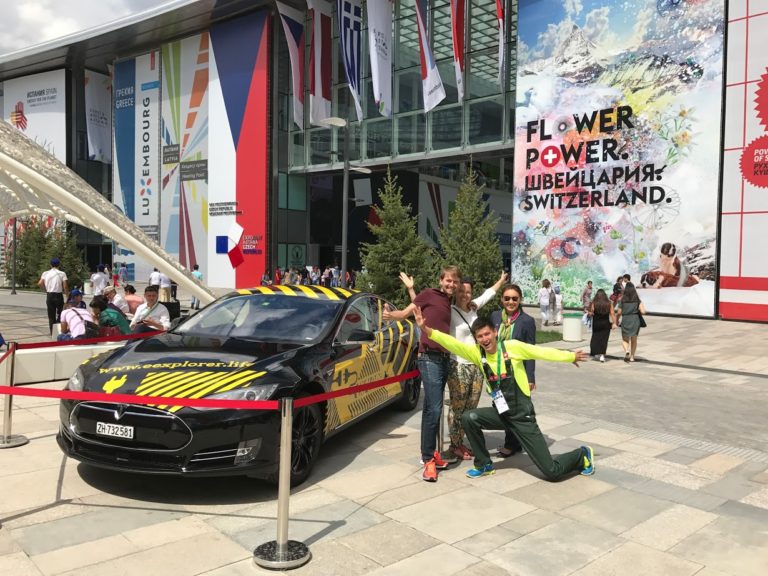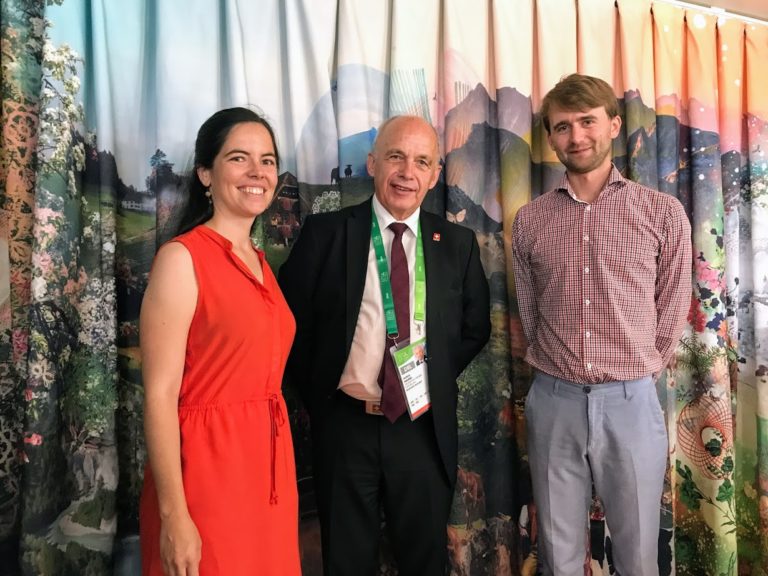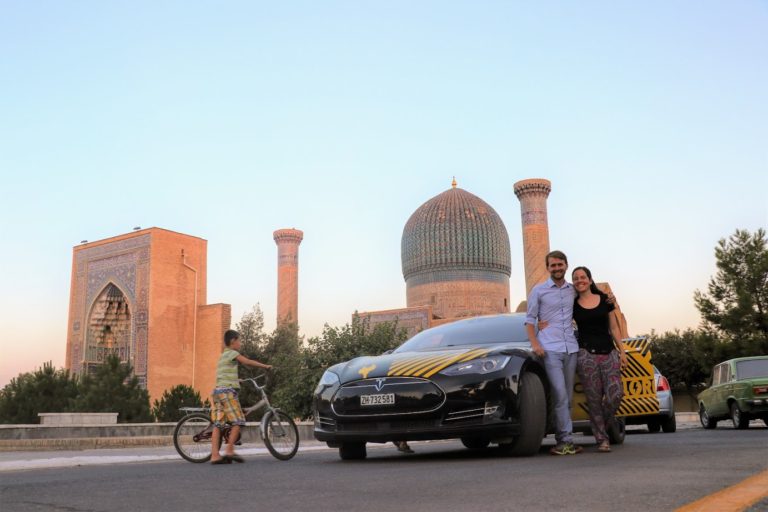An Electric Car Crossing the Arteries of Oil
The skeptics remained unconvinced: An electric car in Kazakhstan, Turkmenistan, or even Iran, wouldn’t that be a notch too provocative? Middle Eastern authoritarian oil regimes welcoming a small Tesla from Zürich? We were quickly declared outrageous, irresponsible or outright insane. The plan, however, stood as it was: leave the comfortable supercharger network in Croatia, cross the Bosporus and, after each 400 km of driving, charge for three hours or overnight wherever we get access to three-phase electricity outlets. Find a way through the hills of Georgia and the mountains of Armenia, convince the people between Iran and Russia to let us fumble with their electricity connections – all while underway figuring out how to cross Turkmenistan (known among travelers as the North Korea of Central Asia) and, for as long as possible and in order to remain sane, willfully ignoring the fact that in Kazakhstan, you can drive for hundreds of kilometers without encountering any civilization (read: electricity).
I can, after the fact, attest: on a psychological level, this journey has been akin to ETH’s Basisprüfung in more ways than I could have imagined (or would have liked, for that matter). But it’s also only after the fact that you cherish, and continually draw from, the experience, knowledge and accomplishments resulting out of a summer of either Basis- or Elektroautoprüfung.
Expo 2017 in Astana: Future Energy (sponsored by Shell)
Ueli would not be waiting forever. In fact, Mr. Maurer (Federal Councillor of Switzerland) would not wait at all. July 11, 12:15h, lunch at Expo 2017 in Astana, capital city of Kazakhstan. During our journey, our margin for error has never been anything but narrow. His invitation trimmed it even further. We wanted to be there, no excuses.
After quickly passing through the Balkans in April and fast-forwarding through spring season, Asia Minor was set foot on at the beginning of May. Georgia was spoiling us with free charging stations, while Armenian streets were pushing the car’s suspension to its limits. Iran’s culture shock took 10 days to absorb, and I committed one or another academic misdemeanor by pretending to be an experienced electrical engineer, when in fact I’ve only graduated BSc ETH in Mechanical Engineering. That’s the lies you tell when you absolutely and no matter what need access to that special fuse box in order to charge the car.
In these regions, travelers at some point have to cope with a point of no return (PNR). Our PNR was the border of Iran to Turkmenistan. Leaving the former for the latter meant, without any option of returning due to Visa regulations, that we had to take the long route around the Caspian Sea and find a way back to Europe through the former Soviet Union. Only 200 meters after our PNR, having left Iran for good and now in no-man’s-land knocking on the gates of Turkmenistan, we made first contact with police arbitrariness on an astronomical scale. We were denied entry to Turkmenistan on the grounds that our car was a) black (which alone has recently become an offense in Ashgabat), b) with tinted rear windows, c) with yellow stickers, and d) electric. Only after countless phone calls by the border guards to what seemed scores of deputies, undersecretaries and ministers, and thanks to the heavy involvement of our tour agency, we were allowed to enter Turkmenistan if we promised to under no circumstances enter the premises of Ashgabat, the capital city. Who knows how many heart attacks our car would have caused in unsuspecting police patrols there?
Research overtaken by reality
Electric mobility is polarizing society, from the next-door neighbors fearing battery melt-downs in their back-yard to the environmental activist hailing a new dawn for the planet. From power utilities challenged by more (or will it be less?) strain on the grid to established car makers paradoxically suppressing demand as long as they can. From politicians eager to meddle with research and innovation to young entrepreneurs raking in grants and investments from governments they love to hate.
By Benedikt Ummen
Benedikt Ummen graduated from ETH with a BSc Mechanical Engineering in 2014. After having been employed in the Swiss venture capital sector for three years, he and his partner Magdalena Witty are discovering Central Asia in an electric car. Their website is available at www.eexplorer.life

